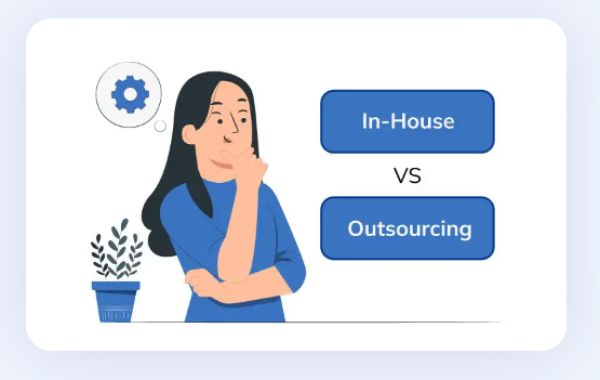In today's competitive business landscape, one crucial decision that companies often face is whether to handle certain functions in-house vs outsourcing them to external experts. This article explores the pros and cons of in-house operations versus outsourcing, helping you make an informed choice for your business.
Understanding In-House Operations
The Advantages of In-House
When a company chooses to keep its operations in-house, it means that all tasks and responsibilities are managed by internal employees. Here are some advantages of this approach:
1. Control and Oversight
In-house operations offer complete control over every aspect of the business process. You can closely monitor and manage tasks, ensuring they align with your company's goals.
2. Company Culture
Having a team under one roof fosters a strong company culture, promoting teamwork, loyalty, and a shared vision.
3. Immediate Response
In-house teams can respond quickly to changing circumstances, making them ideal for projects that require rapid adaptations.
The Disadvantages of In-House
However, in-house operations come with their own set of challenges:
1. Higher Costs
Maintaining an in-house team often leads to increased overhead costs, including salaries, benefits, and infrastructure.
2. Limited Expertise
Your team may not have the specialized skills required for certain tasks, leading to potential inefficiencies.
3. Workload Management
Balancing workloads during peak periods can be challenging, potentially resulting in overworked employees.
The Case for Outsourcing
The Advantages of Outsourcing
Outsourcing involves contracting external specialists or firms to handle specific tasks or processes. Here are the advantages:
1. Cost-Efficiency
Outsourcing can significantly reduce costs, as you only pay for the services you need, without the burden of full-time salaries.
2. Expertise
Outsourcing allows you to tap into the expertise of professionals who specialize in their respective fields, ensuring high-quality work.
3. Scalability
You can easily scale operations up or down based on your business needs, without the constraints of a fixed workforce.
The Disadvantages of Outsourcing
Nonetheless, outsourcing has its drawbacks:
1. Less Control
When you outsource, you relinquish some control over the process, which can be a concern for businesses with strict quality standards.
2. Communication Challenges
Managing an external team can be challenging, especially if they are located in different time zones or speak different languages.
3. Confidentiality Risks
Sharing sensitive data with external parties may expose your business to security risks if not handled properly.
Making the Right Choice
Factors to Consider
When deciding between in-house and outsourcing, consider the following factors:
1. Nature of the Task
Determine whether the task is a core competency of your business. Tasks directly related to your product or service may be best kept in-house.
2. Budget Constraints
Evaluate your budget and assess whether outsourcing can help you allocate resources more efficiently.
3. Skill Requirements
Consider whether the task requires specialized skills that are not readily available within your organization.
4. Long-Term vs. Short-Term
Think about the duration of the project. Outsourcing is often more suitable for short-term or sporadic tasks.
Conclusion
In-house operations and outsourcing each have their merits and drawbacks. The key is to strike the right balance for your business needs. By carefully evaluating the nature of the task, your budget, and the skill requirements, you can make an informed decision that aligns with your company's goals.
FAQs
1. Is outsourcing always cheaper than in-house operations?
Not necessarily. While outsourcing can be cost-effective, it depends on the specific task and the expertise required.
2. How can I ensure data security when outsourcing?
Choose reputable outsourcing partners with robust security measures and sign confidentiality agreements.
3. Can I combine in-house and outsourcing for certain tasks?
Yes, many businesses adopt a hybrid approach, using in-house teams for core functions and outsourcing non-core tasks.
4. What is the typical duration of an outsourcing contract?
The duration varies based on the project's complexity. It can range from short-term contracts to long-term partnerships.
5. Are there any industries where outsourcing is not recommended?
While outsourcing is versatile, some highly regulated industries may have limitations on outsourcing certain functions, such as healthcare and finance.








